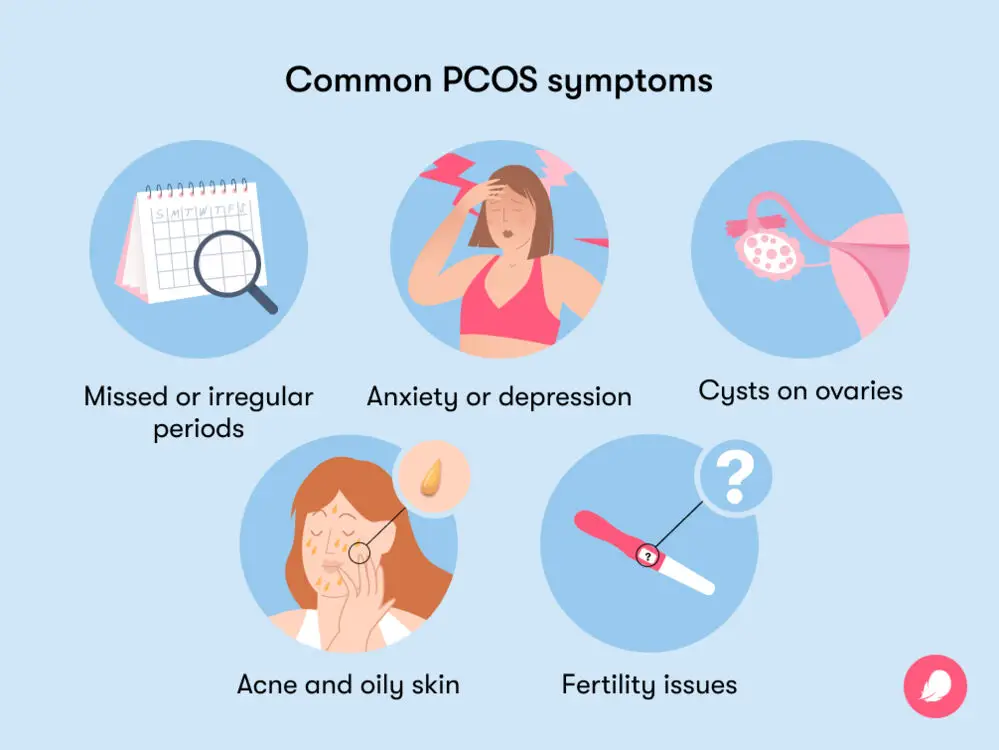Physical Address
304 North Cardinal St.
Dorchester Center, MA 02124
Physical Address
304 North Cardinal St.
Dorchester Center, MA 02124

How to reduce weight with Thyroid and PCOS is a frequently asked question, for those who are suffering from these disorders. Before starting a weight reduction journey with Thyroid and PCOS one should be familiar with these disorders, and how these disorders an make u gain weight.

Thyroid and PCOS are two of the most prevalent endocrine problems in the general population Although thyroid disorders and PCOS have very separate etiopathogenesis they share many characteristics. thyroid disorders have been associated with an increase in ovarian volume and cystic abnormalities in the ovaries. On the other hand, it is becoming more and more clear that women with PCOS have higher rates of thyroid issues than women in the general population. It is currently unknown whether this is due to some shared factors that predispose a person to both disorders or a pathophysiological connection between the two conditions
The term “thyroid disease” describes a variety of disorders that affect the thyroid gland, a small gland in the front of the neck that resembles a butterfly. The thyroid gland produces hormones that control multiple biological processes such as metabolism, growth, and development.There are multiple types of thyroid disease, that include hypothyroidism, hyperthyroidism, thyroid nodules, thyroid cancer, etc. Weight gain could be a sign of hypothyroidism, a disorder in which the thyroid gland is unable to produce a sufficient amount of hormones. Your metabolism could be slowed down which would result in weight gain.

While women are in their reproductive years (between the ages of 12 and 51), PCOS (Polycystic Ovary Syndrome) manifests as a metabolic illness that causes severe hormonal imbalance. The spike of male hormones disturbs their system, preventing menstrual cycles from being carried out, making ovulation inconsistent, and making it difficult to get pregnant. They also develop abnormal facial and body hair that simultaneously leads the way for diabetes and long-term heart problems, which only add to their anxiety. The most comprehensive medical care is required for PCOS,

For people struggling with the problems of Polycystic Ovarian Syndrome (PCOS) and Hypothyroidism, maintaining weight can be a challenge. So, with these factors in play, how does one go about losing those excess pounds? What innovative approaches are required to use? While it's important to have your doctor's professional opinion
The body exhibits a tendency for storing fat, particularly in the abdominal region, owing to an excess of insulin triggered by insulin resistance. According to weight loss experts, resorting to conventional methods of consuming fewer calories and engaging in physical activity may not yield optimal results for individuals with PCOS and hypothyroidism. Subjecting oneself to rigorous exercise/" title="exercise" data-wpil-keyword-link="linked">exercise and stringent dietary restrictions can precipitate fluctuations in blood sugar levels, which can further exacerbate insulin resistance. Inflammation also presents as a roadblock to weight reduction in individuals struggling with PCOS and thyroid imbalances.
By adopting a diet rich in essential nutrients and minimizing the consumption of processed foods, one can effectively combat inflammation. Additionally, it is important to note that sustained calorie restriction can impede metabolic functioning. While it may yield temporary weight loss, the body gradually adjusts to these restrictions by burning fewer calories, ultimately leading to weight gain.
If you constantly find yourself battling cravings, consider prioritizing protein over carbs. Unlike carbohydrates, protein does not cause a surge in blood sugar levels. Consequently, it does not trigger insulin fluctuations that result in post-meal hunger pangs. Furthermore, protein-rich foods are easily digestible and do not provoke inflammation associated with hypothyroidism and PCOS.
Healthy sources of protein include:
Individuals with hypothyroidism and PCOS are prone to developing eating disorders. Mindful eating emerges as a promising solution by promoting heightened awareness of internal cues such as hunger and satiety. This practice not only aids in weight loss but also facilitates the identification and resolution of problematic eating behaviours like emotional eating and binge eating.
Hypothyroidism impairs digestive function, leading to a sluggish metabolism. Opting for smaller, frequent meals comprising a balanced combination of complex carbohydrates, quality proteins, and healthy fats helps maintain stable blood sugar levels. Moreover, it prevents the drastic spikes and crashes associated with consuming highly processed, oversized meals.
Incorporating regular exercise into a healthy lifestyle is crucial for calorie burning. However, it is important to strike a balance as excessive fatigue can further suppress the metabolism in individuals with hypothyroidism. If your hypothyroidism is well-managed and you have sufficient energy, engaging in workouts is highly encouraged.
Including slow-digesting carbohydrates in your diet is paramount as it promotes the reversal of insulin resistance. Furthermore, it aids in the management of hormonal imbalances. Some examples of slow-digesting carbs include:
A few lifestyle modifications can aid in reducing PCOS and thyroid symptoms. Exercise and regular physical activity are among these adjustments. Both can aid in lowering insulin levels, especially when combined with restricted consumption of refined carbs. Several experts agree that at least 150 minutes of exercise each week is the ideal quantity. Weight loss may also result in regular exercise, a low-sugar diet, and a low-inflammatory lifestyle.
Stress might be brought on by PCOS and hypothyroidism symptoms. Techniques for reducing stress that can help you connect with your body and quiet your mind can be beneficial. These include meditation and yoga.
In addition to the above mentioned tips on how to reduce weight, it is advisable to explore medication options to reduce the weight gain associated with PCOS and hypothyroidism.
Consultation with specialists and an in-depth understanding of weight-reducing medications is crucial. Incorporating regular exercise into your routine is also highly recommended for effective management of hypothyroidism and increased energy levels.